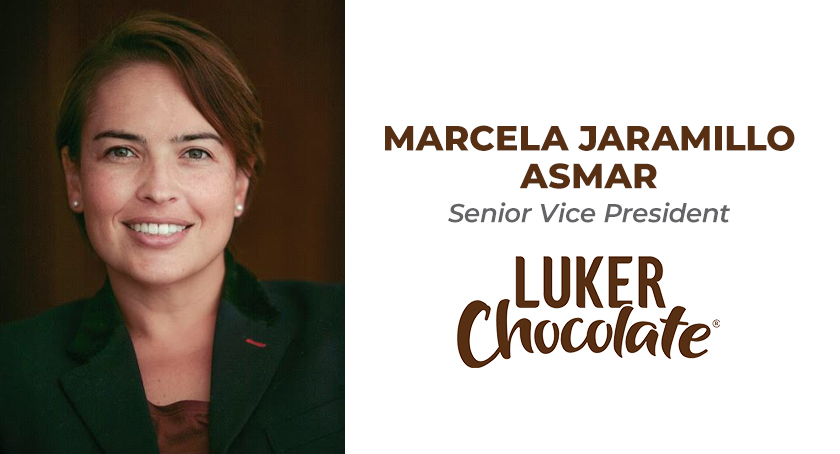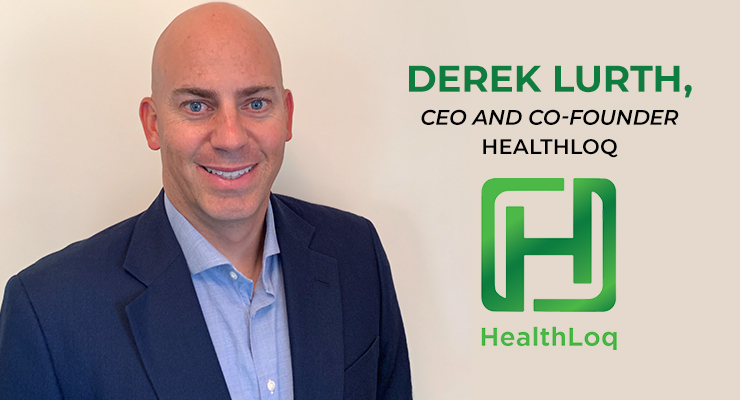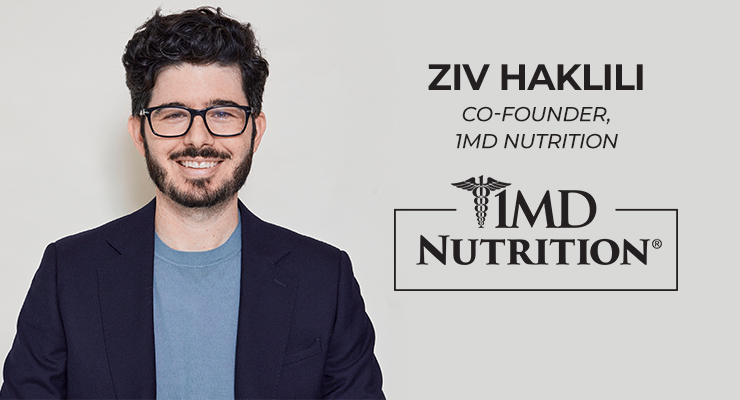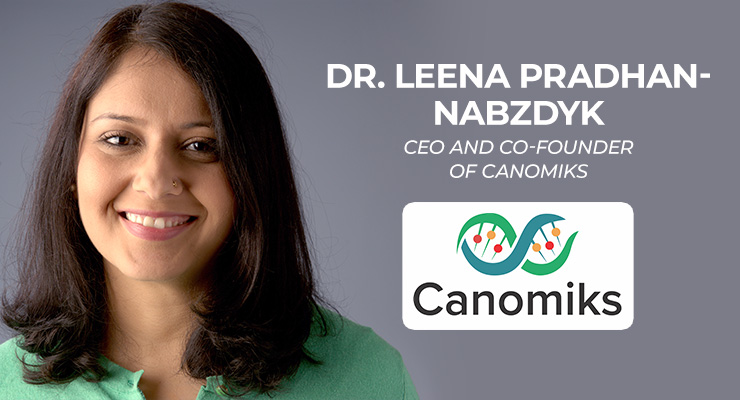Health E-Insights
Luker Chocolate: Committed to Ethical Sourcing, Sustainability, Premium Product Quality
Marcela Jaramillo Asmar, senior vice president, discusses the B4B company’s leadership in sustainability and regenerative agriculture.

By: Sheldon Baker

Marcela Jaramillo Asmar serves as the senior vice president of marketing at Luker Chocolate, where she plays a pivotal role in shaping the brand’s global marketing strategy. Asmar is focused on elevating the brand’s presence in new and existing markets and spearheading B4B initiatives to support customer growth aligned with the company’s purpose-driven and sustainability-focused mission. Her understanding of integrated value chains rooted in agricultural production is a key element in supporting Luker’s brand narrative and value proposition. Asmar’s approach to marketing, combined with her insight into consumer trends, is central to Luker Chocolate’s strategy as it continues to differentiate itself in competitive markets, including the nutraceuticals sector.
Based in Colombia, Asmar’s 20-year career trajectory is marked by her work with globally recognized food and beverage brands. Before joining Luker Chocolate, she was the communications development manager for Nestlé Colombia, where she honed her skills in crafting compelling brand narratives and driving consumer engagement.
Health E-Insights (HEI): What makes Luker Chocolate special?
Asmar: Luker Chocolate is a family-owned B4B chocolate manufacturer founded in 1906. As a B4B company, we strive to help brands grow, and together, we work to transform the world through chocolate. We champion a “Triple-Impact Vision” (economic, social, and environmental) to positively impact the chocolate value chain and drive prosperity in cocoa-growing communities. Furthermore, we offer our customers the possibility to create with our wide-range of chocolate options, as well as work closely with our new product development team to develop tailor-made solutions to match growing consumer trends.
HEI: What is the company’s commitment to sustainability and regenerative agriculture?
Asmar: Our founders understood the principle of creating shared value: value for the farmers and communities we work with; value for the customers we serve; value for the people who work at Luker; value for our partnerships; and value for the land that we all depend upon. This heritage drives our unique sustainability plan — The Chocolate Dream — and our Triple-Impact Vision to enhance the wellbeing of cacao-growing families, their communities, and the planet.
The Chocolate Dream is a collective plan through which farmers, communities, and Luker’s partners across the chocolate value chain work together to drive prosperity in Colombia’s cocoa-growing regions. In 2023, the Chocolate Dream reached more than 3,900 rural families, strengthened the social fabric of rural communities, and ensured environmental balance and biodiversity in the regions.
Moreover, in 2019, Luker Chocolate started the journey towards becoming a B Corp Certified business — joining a global community of progressive and purpose-driven organizations. We achieved B Corporation certification in 2023, reflecting our longstanding commitment to being a better company and brand for the future.
In its plan to ensure better chocolate through better cocoa growing practices, Luker is working closely with farmers to implement regenerative practices in Colombia. Promoting agroforestry design in cocoa farms, putting forward bio-alternatives to fertilizing, and enforcing the protection of water sources are part of the initiatives that Luker is putting forward through The Chocolate Dream. Currently, Luker has reached more than 11,000 hectares of land with these initiatives.
Furthermore, Luker is promoting the adoption of regenerative agriculture practices and supporting farmer groups that are interested in taking additional steps to achieve certification. Luker is creating the first regenerative certified cacao farmers group in Colombia. Based in Urabá and working with one cacao association, we have supported 80 farmers in adopting regenerative farming approaches, including monitoring soil development and using organic materials developed with Luker technologies on their farms. Together with the Colombian NGO, the Bancolombia Foundation, Luker promotes an annual meeting designed to raise awareness and adoption of regenerative practices in the cacao sector. Called “Agriculture that’s friendly to people and the environment,” the meeting hosts national and international speakers and attendees to share best practices. The event has brought together over 120 farmers each year since 2023.
HEI: What direct impact has Luker had on the environment in communities where it operates?
Asmar: Through environmental training and the implementation of good agricultural practices, Luker has significantly impacted local communities. In 2023, Luker engaged with farmers and community members to raise awareness and enhance their roles as primary guardians of their environment. This involved direct intervention to prevent deforestation, protect water sources, and promote agroforestry designs.
Specifically, Luker’s commitment to no deforestation goes beyond a pledge. It includes active collaboration with farmers to enforce sustainable agricultural practices and to cultivate a culture of environmental stewardship. These efforts have positively influenced 11,945 hectares, focusing on sustainability, biodiversity enhancement, water conservation, and forest protection. By fostering an environmentally conscious mindset among local communities, Luker has contributed to the long-term health and resilience of the ecosystems in which it operates.
HEI: What role has technology played in product production?
Asmar: Technology plays a crucial role in Luker Chocolate’s product production, enhancing quality, efficiency, and sustainability. Advanced traceability systems ensure transparency in their supply chain, improving ethical sourcing and product quality. Modern agricultural techniques optimize crop yields and support sustainable farming practices. Technological innovations in processing and manufacturing help minimize environmental impact while maintaining high standards in chocolate production.
HEI: Is upcycling part of your business model?
Asmar: Luker is committed to reducing waste and finding solutions that have the potential to improve farmers’ income. We have focused on finding additional uses for the cacao fruit left from the cocoa post-harvest process. Currently, only 18% of the cacao fruit is used in chocolate, presenting a significant opportunity for product development by leveraging the nutritional, functional, and sensory properties of the cacao pod.
This year, we are inaugurating our cacao pod processing plant in Casanare, which will be able to process 42,000 pods per month. This facility will allow us to transform these pods into indulgent ingredients for chocolate making and other food products, tapping into the vast potential of the cacao fruit. Through these upcycling efforts, Luker promotes a circular economy, making better use of the resources we already have and contributing to a more sustainable future.
HEI: Talk about your functional food chocolate products.
Asmar: We offer a range of functional chocolate ingredients designed to provide health benefits beyond traditional chocolate. One of Luker’s newest offerings is the 44% Dark Chocolate with Protein, which is kosher, plant-based, gluten-free, and non-GMO. Formulated with pea protein, it contains 5 g of protein per 25 g serving. This product is ideal for creating snacks like trail mixes and nutritional bars. Additionally, we offer drinking chocolate with whey protein for those customers who want to introduce functional drinks into their portfolio.
Our new product development team constantly reviews functional ingredients to complement chocolate’s nutritional benefits and take advantage of chocolate as a carrier of functional ingredients. We work closely with our clients to tailor solutions to meet the growth of the functional segment and uncover new added-value possibilities for chocolate.
HEI: Is private label for consumer products among your offerings?
Asmar: Yes. We proudly offer private label services for consumer products to retailers and brand owners in categories such as chocolate confectionery, snacking, baking products, and hot chocolate. Leveraging over a century of expertise in high-quality, sustainable chocolate production, Luker enables other brands to create their own premium chocolate products. Our private label services extend beyond mere production; we partner with clients to develop innovative, market-ready products that stand out for their exceptional taste, ethical sourcing, and commitment to sustainability.
Luker’s private label offerings are designed to meet the highest standards of quality and transparency, helping companies align with the growing consumer demand for responsibly produced goods. We provide a diverse range of formulations, from single-origin chocolates to unique flavor profiles, all crafted with our renowned commitment to sustainability and ethical practices.
In addition to product formulation, Luker offers sustainable packaging solutions that enhance the product’s market appeal and environmental footprint. Our comprehensive support includes the entire development process, from initial concept and formulation to packaging and design, ensuring that each product not only meets but exceeds market expectations.
By choosing Luker Chocolate for private label services, brands gain access to our extensive knowledge and resources, empowering them to create exceptional, ethically produced chocolate products that resonate with today’s discerning consumers.
HEI: As an export manufacturer of high-end chocolate products, how do your prices compare to other brands?
Asmar: Luker Chocolate’s prices are competitive within the high-end market segment, reflecting the superior quality and sustainability of their products. While prices may be higher than mass-produced chocolates, they are justified by a differentiated product experience, ethical sourcing, high-integrity trade practices, and environmental commitments. Luker’s focus on quality and sustainability makes their products appealing to consumers willing to pay a premium for responsibly produced chocolate.
HEI: What chocolate trends, if any, are you seeing, and how it might affect Luker?
Asmar: Current chocolate trends show a growing demand for sustainable, ethically sourced products and healthier, functional chocolates. Luker Chocolate is well-positioned to capitalize on these trends due to our strong commitment to sustainability and innovative product offerings. The increasing consumer preference for transparency in supply chains and health-oriented products will likely enhance Luker’s market position, ensuring continued growth and relevance in the evolving chocolate industry.
Luker is actively developing functional chocolates that cater to health-conscious consumers, combining indulgence with nutritional benefits. We also explore new and exotic flavors to create unique taste experiences. Our traceable supply chain and commitment to sustainability resonate with the demand for greater transparency, fostering trust and loyalty among our customers. Through continuous innovation and a deep commitment to our values, Luker Chocolate is poised to lead in the dynamic chocolate industry.
About the Author: Sheldon Baker is a full-time freelance writer who covers health and wellness and other fun topics for Nutraceuticals World, Rodman Media, and other publications. He’s based in Northern California near Yosemite National Park, and enjoys exploring worldwide destinations, especially New York City, Mumbai, India, and Sydney, AU. He’s also happy to hang out at home with his wife and the many young foster children in their care. Follow him on Twitter @SCB3128 or send him an email at sbaker@bakerdillon.com.




















